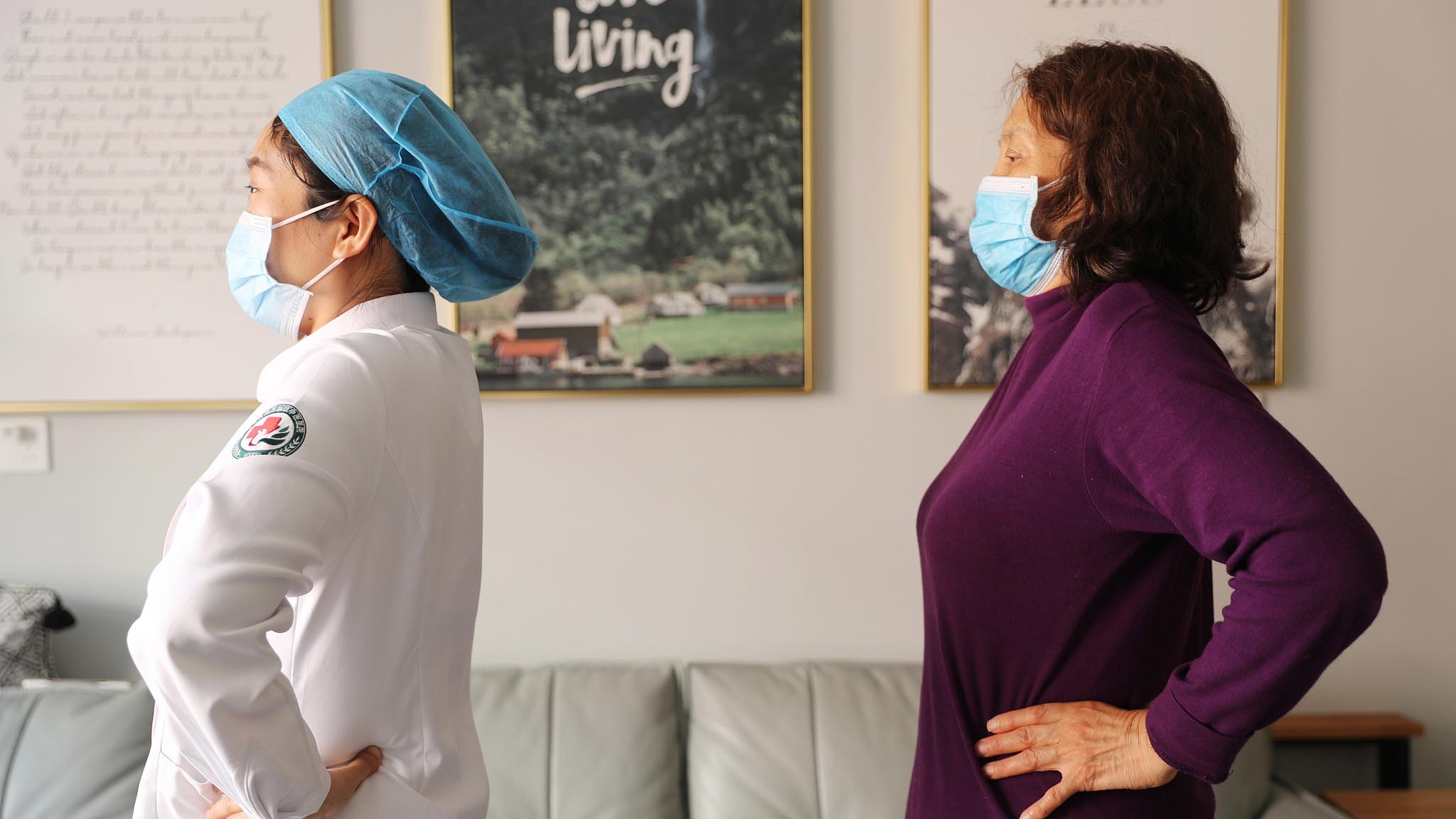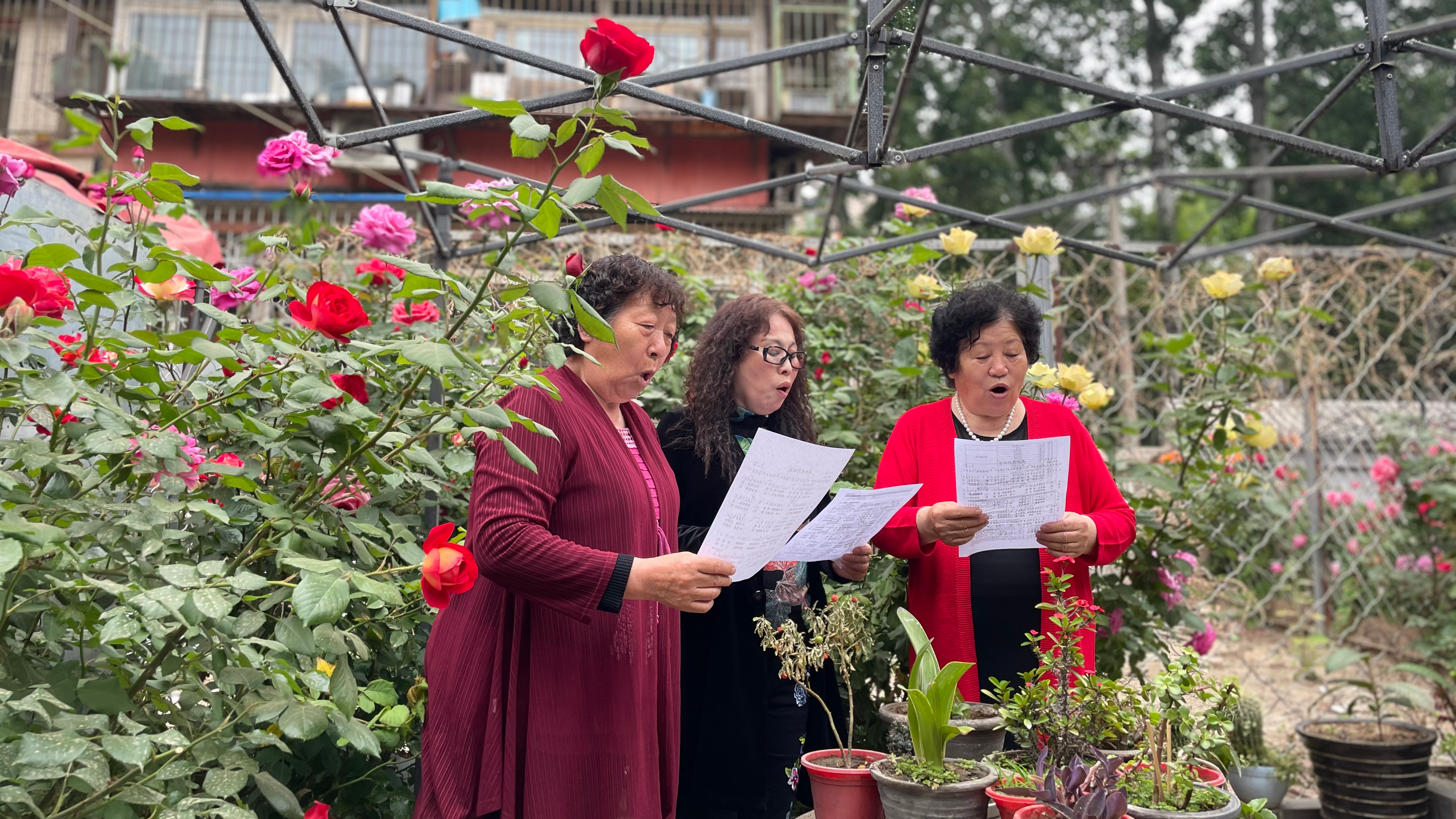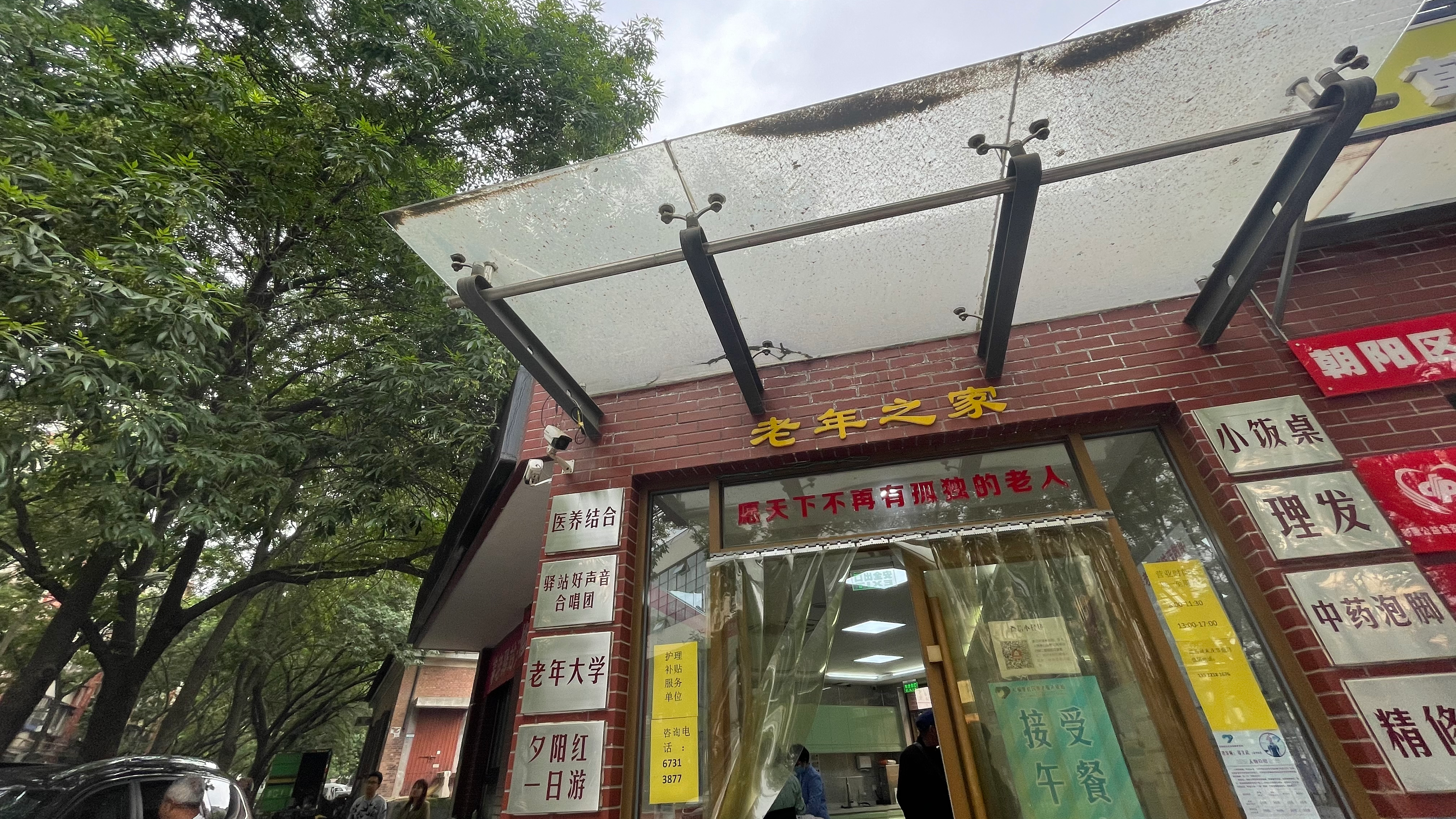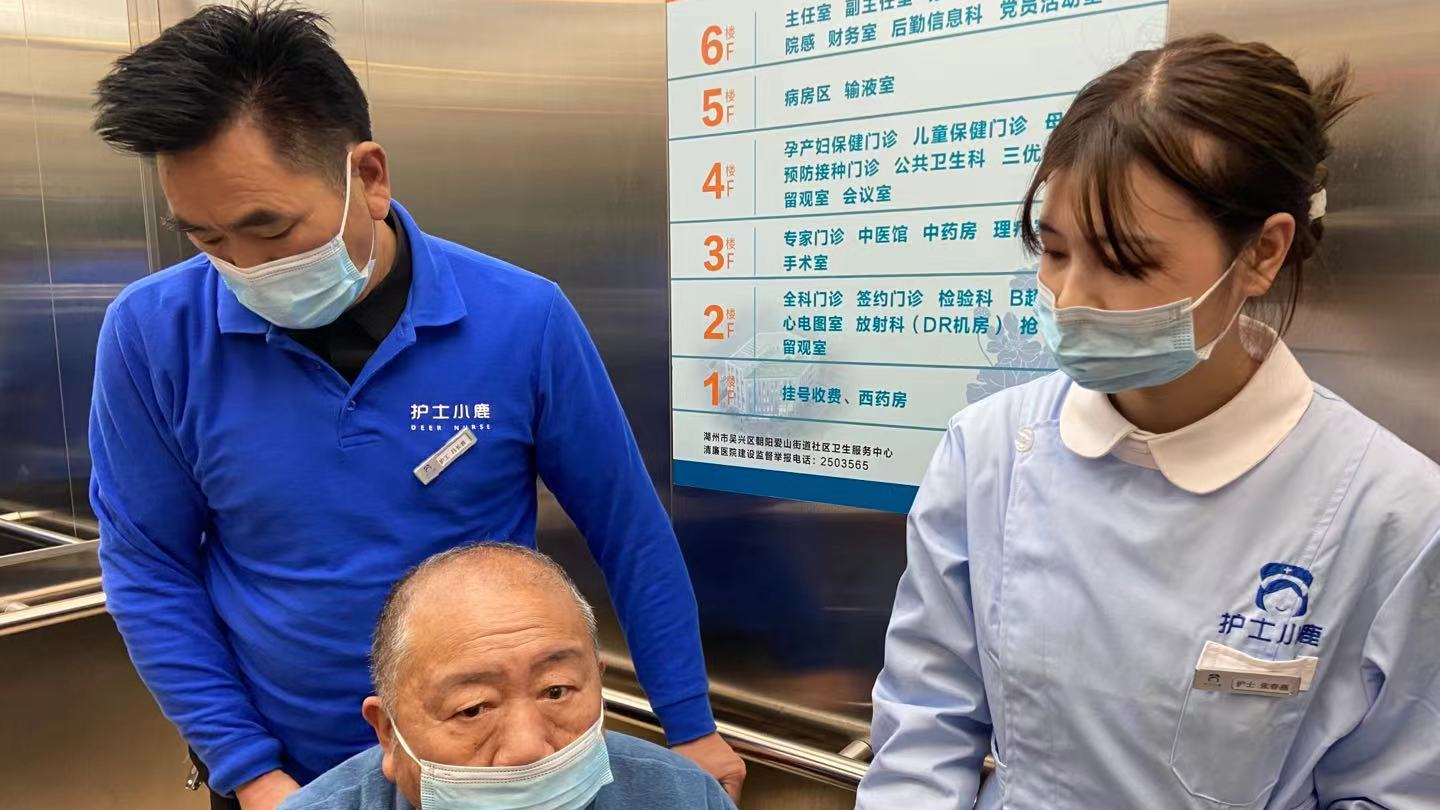04:34

Ninety percent of China's elderly population now live at home and are fully dependent on their family or themselves, according to the National Health Commission.
An increasingly aging society means tremendous and yet still growing pressure for working-age individuals, who are still considered the primary caretakers of the elderly in Chinese culture.
Here are some ways to lessen the strain.
Public elderly care center
Government-funded small care centers are developing rapidly in big cities. For example, Beijing opened its first elderly care community center in 2017. Now, the capital city has over 1,000 such centers in residential areas.
In Beijing, these centers open on weekdays, provide meals and basic health checkups and organize recreational activities for retirees living nearby. They charge a minimal fee for those services, and the government covers the rest.

Seventy-three-year-old Chang Haiping (L), 60-year-old Mu Lan (C) and 71-year-old Chen Huimin became friends after joining the singing group at the Songyuli community elderly care center in Beijing. /CGTN
Seventy-three-year-old Chang Haiping (L), 60-year-old Mu Lan (C) and 71-year-old Chen Huimin became friends after joining the singing group at the Songyuli community elderly care center in Beijing. /CGTN
Sixty-year-old Mulan has been a constant visitor to an elderly care center in Songyuli – an old apartment compound in Southeast Beijing. She joined the singing group there and said the center helps retired people like her regain a sense of purpose.
"The music teachers would ask us to record ourselves and send clips through WeChat to make sure we are participating at home. It's like returning to school," Mu said.
On top of the basics, seniors in the neighborhood can also have cheap haircuts, pedicures, massages or sign up for short-term trips – services that seniors from other blocks may not have the chance to enjoy.

The elderly care center in Songyuli, Beijing. /CGTN
The elderly care center in Songyuli, Beijing. /CGTN
"The centers are operated by different business entities – including qualified insurance companies, public institutions and state-owned enterprises (SOEs) – so the quality could vary," said Cui Yang, chief director of the elderly care center in Songyuli, who is also a full-time employee of a small public hospital nearby. The hospital put Cui in charge when it applied to operate this elderly care center.
Short-term stay
Commercial nursing homes have also come up with various package services to make up for home-based elderly care, such as a short-term stay during special times.
Sinohome Healthcare, jointly funded by investment management company Hopu Fund and insurance company Dajia, operates two nursing homes in downtown Beijing. It provides under-30-day bookings for seniors that have to live without their personal caretakers for a while.
Tan Jiangyi, president at Sinohome's Chaoyang branch, said the short-term service originally targeted unattended seniors during the Spring Festival holiday when the hired helpers need to leave for family reunions. However, the service has since expanded to hospice care and medical rehabilitation.
A convenient location and a "semi-open" management model enable the likes of Sinohomes to engage in-home or community-based elderly care. Sinohome's Chaoyang branch is by the east 3rd Ring Road and only a 20-minute walk away from a major shopping center, and residents without serious health conditions can go out freely during the daytime.
"It's convenient for people working in the city to drop or visit their parents here. And we hope seniors living here can directly talk to people outside, so they don't feel cut off from the community," Tan said.
Many downtown commercial nursing homes, including Sinohome, are now allowed to take part in the government's community-based elderly care program, starting with providing meals to retired people living in the neighborhood.
On-call nursing service apps
China's first shared-nurse platform, Goldnurse, opened in 2016 amid the much heated sharing economy trend. Users can schedule a nurse visit online and have them perform basic medical care at home.
Investment quickly poured in after the National Health Commission green-lighted the model in certain areas, including Shanghai, Beijing and Zhejiang Province in 2019.

A Xiaolu caretaker and a nurse help an old man in a wheelchair in Huzhou, Zhejiang Province. /Xiaolu
A Xiaolu caretaker and a nurse help an old man in a wheelchair in Huzhou, Zhejiang Province. /Xiaolu
"Xiaolu" is among the latest ones. Launched in December last year, the app has served 20,000 users in at least four cities in Zhejiang Province. Its business is over 70 percent reliant on elderly and severe disability care.
"On-call service is exactly what they need, and the local government also purchased our service for the most vulnerable groups as social welfare," said Shou Dingli, founder and general manager at Xiaolu.
But despite the benefit, Shou noted that some seniors' lifestyle and consumption habits sometimes stand in the way.
"Our target elderly users are mostly born between 1930 and 1950; they are pretty conservative with spending. The on-call nurses charge a little more than in hospitals because of the labor cost, which seniors are having a hard time accepting," Shou said.
Local authorities also have stricter requirements for on-call medical service providers regarding patient safety. For example, Beijing has banned platform nurses from giving intravenous insertions at users' homes.
Social benefit-related sectors are by nature not places to make quick profits. They have to wait for ideas, buying power and regulations to evolve and catch up.
Shou finds that middle-aged users are more willing to pay extra for professional medical care, and it's often them that order on-call services for their parents – a sign that points to future demand.

